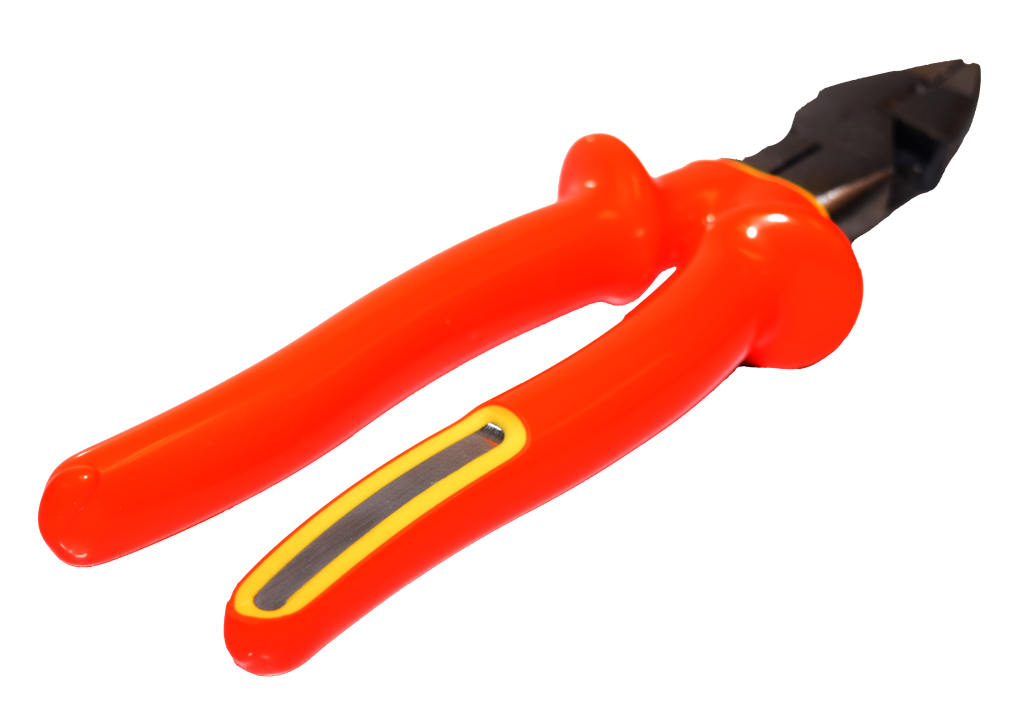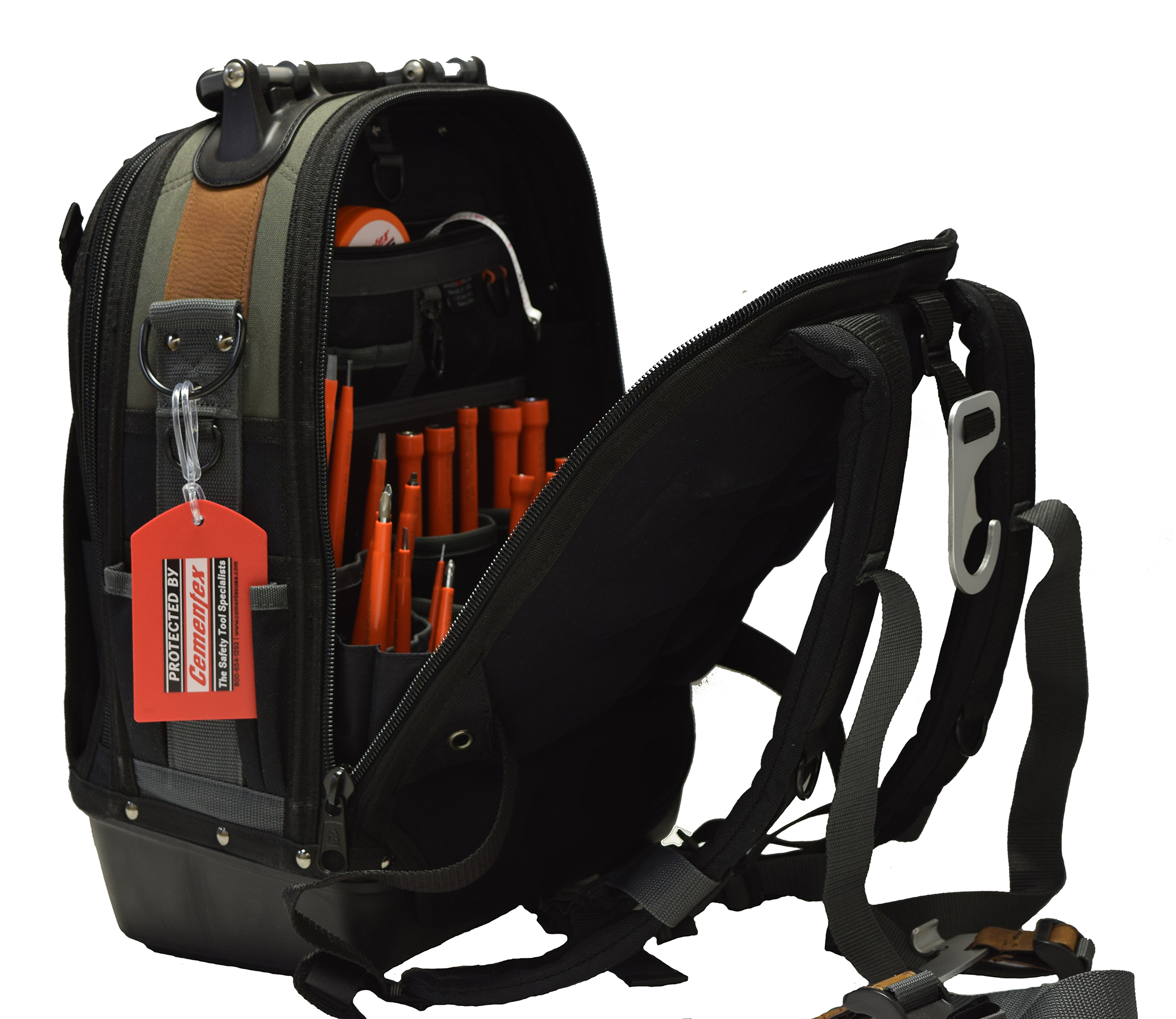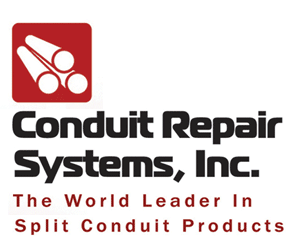INSULATED HAND TOOLS are critically important to protecting personnel working in the proximity of energized equipment, but products vary greatly in performance. The highest quality tools are engineered and manufactured to durably retain their essential insulative properties.
But lower cost options are also available. Big box stores, e-commerce sites, and discount tool retailers offer insulated tools that meet minimal standards but often provide less reliability over the life of the product. This low price / low performance option is difficult to justiy with the potential catastrophic human and economic consequences of electric shock and arc flash accidents.
High Quality Insulated Tools are Essential
If the insulation becomes damaged or if the tip breaks off a low-quality screwdriver, the costs of a resulting electrical accident can be enormous n arc flash can reach temperatures of 30,000oF – hotter than the surface of the Sun. One or two deaths still occur each day in the U.S. from arc flash incidents, with average litigation costs estimated to be $10-15M. And thousands of people are treated each year for burns from arc flash accidents, typically requiring significant time away from work or permanent disability.
Even with the safety mandates like, OSHA 1910.335 requiring that hand tools be insulated. “When working near exposed energized conductors or circuit parts, each employee shall use insulated tools or handling equipment if the tools or handling equipment might make contact with such conductors or parts. If the insulating capability of insulated tools or handling equipment is subject to damage, the insulating material shall be protected.” Double-insulated hand tools have that built in extra safety factor.
The requirement for insulated tools is not just for situations when the tool is making contact with an energized object, but also when entering a specifically defined proximity of an exposed energized conductor. OSHA recognizes the electrical safety guidelines within NFPA 70E. According to the 2018 Edition, Section 130.7(D) (1): Employees shall use insulated tools or handling equipment, or both, when working inside the restricted approach boundary of exposed energized electrical conductors or circuit parts where tools or handling equipment might make unintentional contact…”
At a minimum, all insulated tools must be labeled with the international double-triangle symbol that indicates that the tool was tested to 10,000 VAC and rated for 1,000VAC/1,500VDC for working around energized parts, according to IEC 60900 and/or ASTM F1505 standards.
Reliable Long-Term Performance is Critical
These minimal manufacturing standards are important but do not always provide a reliable indication of how well a product will stand up over time. Wear and tear can degrade insulative effectiveness, and a single drop of a tool can cause micro cracks that instantly render the tool unsuitatale for use on live voltages.
When selecting insulated tools, there are essentially two key ways to evaluate performance and reliability. First, at the time of purchase, look for companies with established reputations for quality – companies that make investments
in building and protecting their brand with superior engineering, materials and manufacturing processes. Likewise, look for products where the tool and the coatings are manufactured in the U.S., rather in some unknown or less reputable country of origin.
And consider the warranty, a clear indication of the company’s own judgment of its product quality.
The Most Important Feature: User Warning System
The second and even more important way to evaluate tool quality is tangible and visible on the tools themselves. The two layers of coatings need to have distinctly different colors, so that cuts, cracks and other damage of the outer layer is readily apparent. NFPA 70E, 103.7 (D)(1)(a)(3) requires “that insulated hand tools and equipment shall be inspected prior to each use. The inspection shall look for damage to the insulation or damage that can limit the tool from performing its intended function or could increase the potential for an incident.” If the inner insulation becomes visible through the outer layer, the tool is not repairable and must be removed from service.
Quality tools also come with other features, such as the capability to apply the insulative coatings with precision to adequately cover hard-to-reach contours and to taper the coatings at the working end of the tool without compromising insulative performance.
The range of products available from a manufacturer is also an important consideration. Optimal safety requires using precisely the right tool for each task, without having to make do with workaround solutions. You also want to have the flexibility to custom design kits with all the specific tools you do need, without having to pay for included tools that you don’t need.
While the focus is on protection from electrical shock, quality tools also afford another kind of protection: custom laser etching is effective at preventing theft, by marking the name of the owner. Unique identifiers can be etched on each tool, to track which tools have been assigned to each person or job.

“Just OK isn’t OK”
The AT&T ad campaign that “when it comes to wireless networks, just OK isn’t OK” makes a clear and compelling point, that when selecting a surgeon or a tattoo parlor, and making other critically important choices, you don’t want to compromise on quality. This principle applies to selecting PPE for extremely dangerous electrical hazards.
There are many areas in any business where cost savings can be achieved by intentionally selecting products with
a lower price-performance ratio. But with high voltage PPE, the lower price / lower performance products are not worth the risks.




